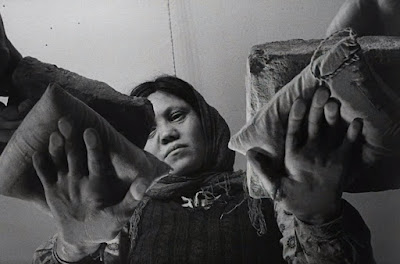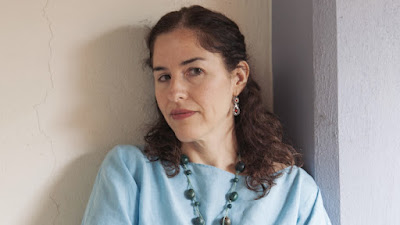The event was curated and presented by Ehsan Khoshbakht, who restored these important films in Bologna—some of which were screened in their fully restored format for the first time this evening—and eloquently provided background to the films, their makers and the history of experimental filmmaking in Iran. The evening was especially poignant in light of the recent death of a 22-year-old Kurdish woman, Mahsa Amini, after being arrested in Tehran by the morality police for allegedly violating laws on hijab covering.
The first two films, commissioned by the Iranian government, were The Hills of Marlik (1963) and The Crown Jewels of Iran (1965) directed by self-taught Ebrahim Golestan, who has spent more than the last four decades living in the UK and whose 100th birthday is upcoming next month. Commissioned by the Shah, The Crown Jewels of Iran was largely censored, so that the increasingly critical and sardonic voiceover was removed during public screenings, with only a couple of uncontroversial and contextual sentences retained.
Next came The Night It Rained (1967), commissioned by the Ministry of Arts and Culture, directed by Kamran Shirdel, which told the story, by way of contradictory narratives, of a village boy from Gorgan who may or may not have heroically stopped a train in a heavy rainstorm after a bridge collapsed. The interviewer speaks to several different people with different professional or community roles that are related (some more tangentially than others) to the mysterious event, including journalists, railway operators, the boy's school teacher, neighbours in the village, the police, etc., each of whom have competing convictions. We never learn what actually happened that night and, of course, the point is that the truth is unreachable as no storyteller can be trusted, each bearing motivations deliberate or unconscious, corrupt or naive. Indeed, the film repeatedly cuts to the hands of an elderly women for a split second, as she fingers prayer beads, spluttering "lies, a pack of lies!".





